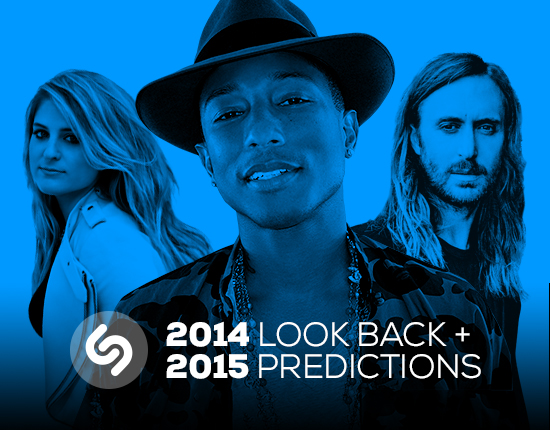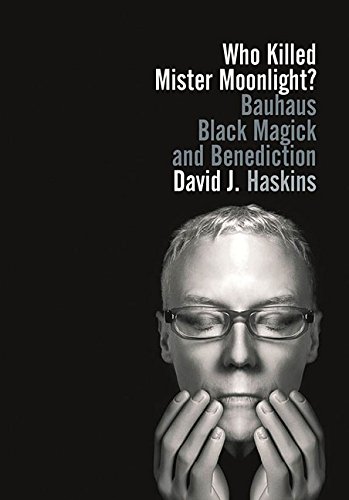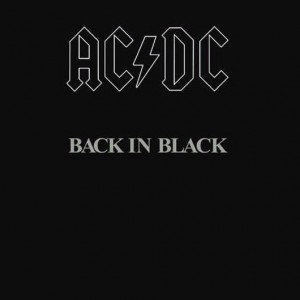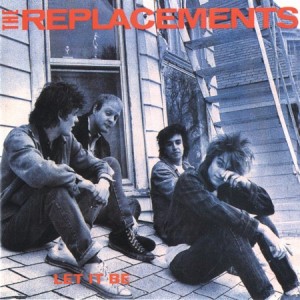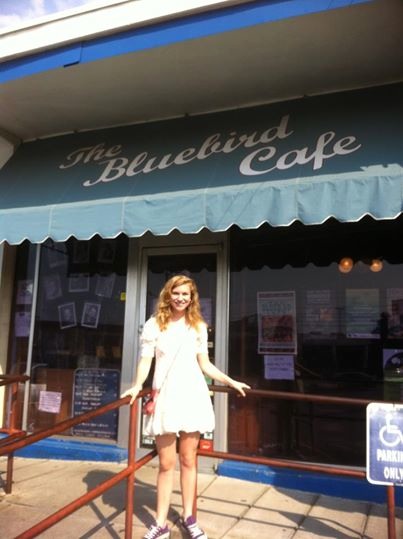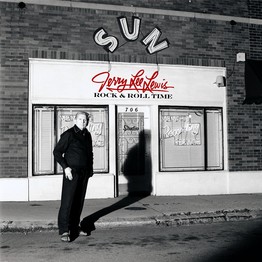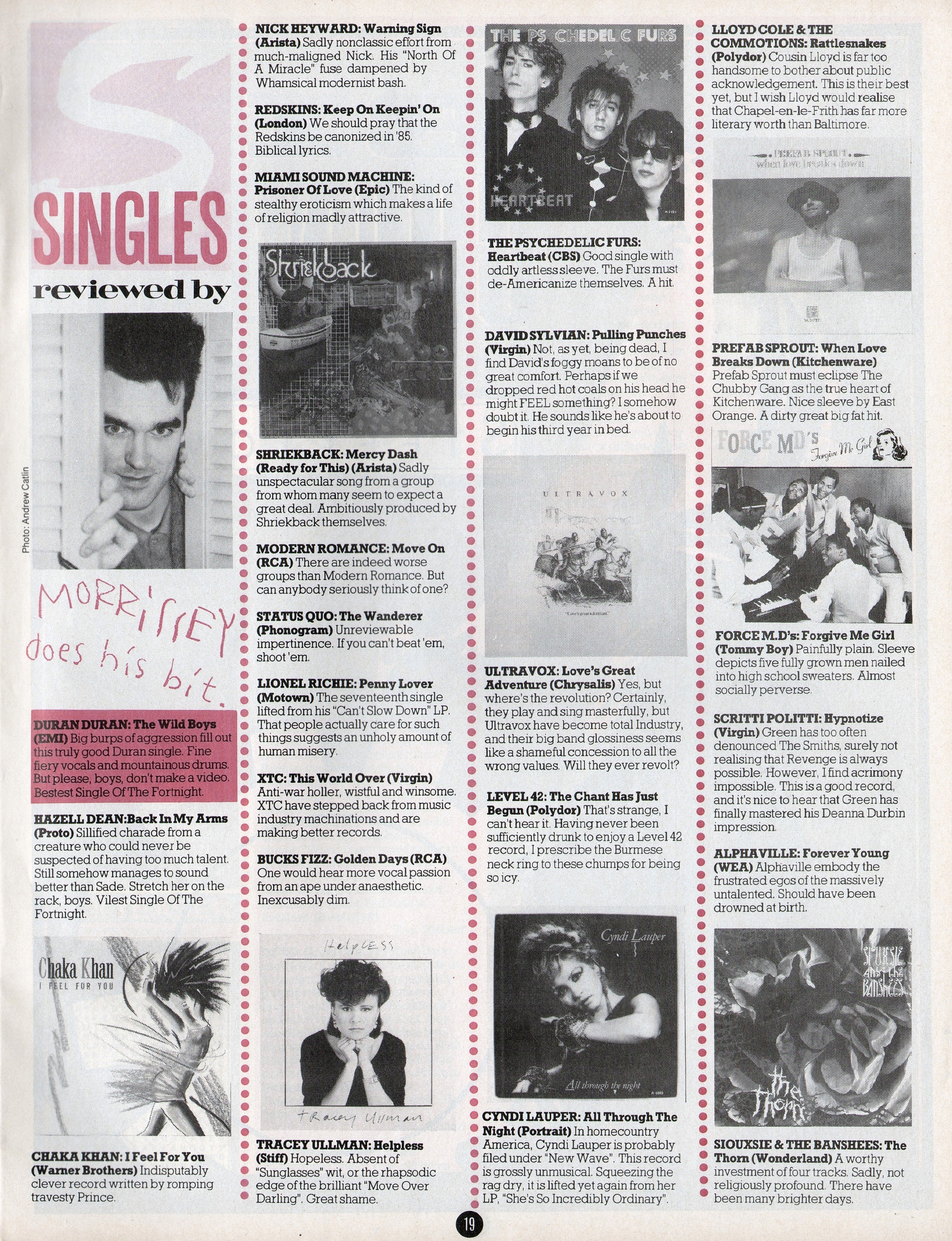Believe it or not, Yogi Bear’s collar changed television forever. His collar is the reason we have “The Simpsons,” “Family Guy,” and seemingly every other cartoon TV series. Watch the video to find out why.
Top Ten Most Shazamed Artists and Songs of 2014
Shazam has released the Top Ten Most Shazamed Artists and Tracks of 2014 below and see if your favorite hit made it to their lists.
They also gavean inside look into their predictions for Shazam’s Hit Makers of 2015. Take a look at their picks spanning pop, rock, country, dance and more – if you haven’t heard of them yet, I guarantee you will soon. Be the first to tune into these breakout artists and watch as they wow the world in the New Year.
Top Ten Most Shazamed Artists of 2014 in the US:
- John Legend
- Katy Perry
- Ed Sheeran
- Iggy Azalea
- Lorde
- OneRepublic
- Disclosure
- Magic!
- Jason Derulo
- Nico & Vinz
Top Ten Most Shazamed Artists of 2014 Worldwide:
- Avicii
- David Guetta
- Ed Sheeran
- Katy Perry
- Jason Derulo
- Clean Bandit
- OneRepublic
- John Legend
- Calvin Harris
- Pharrell Williams
Top Ten Most Shazamed Songs of 2014 in the US
- John Legend “All of Me”
- Disclosure Feat. Sam Smith “Latch”
- Magic! “Rude”
- Nico & Vinz “Am I Wrong”
- Clean Bandit Feat. Jess Glynne “Rather Be”
- Meghan Trainor “All About That Bass”
- Katy Perry Feat. Juicy J “Dark Horse”
- Sam Smith “Stay With Me”
- Jeremih Feat. YG “Don’t Tell ‘Em”
- Pharrell Williams “Happy (Gru’s Theme from Despicable Me 2)”
Top Ten Most Shazamed Songs of 2014 Worldwide
- Clean Bandit Feat. Jess Glynne “Rather Be”
- John Legend “All Of Me”
- Lilly Wood & The Prick & Robin Schulz “Prayer in C (Robin Schulz Radio Edit)”
- Mr. Probz “Waves”
- Nico & Vinz “Am I Wrong”
- Magic! “Rude”
- Katy Perry Feat. Juicy J “Dark Horse”
- Pharrell Williams “Happy (Gru’s Theme from Despicable Me 2)”
- Milky Chance “Stolen Dance”
- Kiesza “Hideaway”
Shazam’s 2015 Hit Makers Predictions
Young Thug: Every track Young Thug has touched in 2014 has been massive. The next 12 months look bright for this 22 year old rapper.
Echosmith: This teenage band has slowly built over the last 16 months to become one of the most Shazamed acts in the US. Echomsith enters 2015 on a crest of a wave with “Cool Kids” having caught on and a successful summer headlining the Warped Tour.
Rae Sremmurd: Rae Sremmurd have had two of the biggest rap singles of the past six months. They’ve worked with Nicki Minaj and are currently being mentored by the in demand producer, Mike Will Made It.
Oliver Heldens: This Dutch 19 year old is already a massive DJ and a huge draw at festivals but 2015 could see him go to the next level of dance music stardom. His new track, ‘Koala’, is currently one of the most reactive dance records on Shazam.
DeJ Loaf: This Detroit rapper has had one of the breakthrough songs of the year with ‘Try Me’. She’s now been signed to Columbia and Drake’s a noted fan. Her new mixtape is already receiving a great reaction on Shazam.
Sam Hunt: Sam Hunt is set up to be one of the next big country music stars. His song ‘Leave The Night On’ was the second most Shazamed Country song of 2014 and his album is already receiving a massive reaction with Shazam users.
James Bay: This British singer songwriter is already being talked about as the next Ed Sheeran. His songs have been hugely reactive from minimal radio play- most notable from a few early spins on Radio One in the UK.
Maddie & Tae: This act has been number one in Shazam’s Country charts for over 8 weeks. The Texan duo may be headed for cross-over success when their album drops sometime next year.
Years & Years: This English act could be the next big pop act. They were featured on ‘Sunlight’ by The Magician, a big radio hit in Europe. Their debut album is expected sometime in 2015.
Tchami: This French producer is one of the few acts that have broken into the Shazam charts with only specialist radio and club playing his music. His song, ‘Promesses’, is going to be a big cross over hit early next year.
Honorable Mention:
Raury: This 18 year old Atlanta born singer has a sound influenced by Andre 3000, Bon Iver and Frank Ocean. He’s drawn comparisons to Lorde and is featured on the new Huger Games soundtrack – incidentally curated by Lorde herself.
David J Haskins on Bauhaus, His New Autobiography, and Sasha Grey
Beginning with the creation of Bauhaus’s seminal debut hit ‘Bela Lugosi’s Dead’, David J. Haskins, when talking, offers a no-holds-barred account of his band’s rapid rise to fame and glory in the late 70s, their sudden dissolution in the 80s, and their subsequent (and often strained) reunions.
In his new autobiography, Who Killed Mister Moonlight, he explores his work as a solo performer, and with acclaimed trio Love And Rockets—culminating in the devastating fire that ripped through the sessions for their 1996 album Sweet F.A. He also delves deep into his exploration of the occult, drawing together a diverse cast of supporting characters, including William S. Burroughs, Alan Moore, Genesis P. Orridge, and Rick Rubin.
J was a founding member of the highly influential English post-punk band Bauhaus in 1978, playing bass. David J wrote the lyrics of several Bauhaus songs (including their first single, “Bela Lugosi’s Dead”). He sang backing vocals on many songs, and sang lead on “Who Killed Mr. Moonlight?” Bauhaus first broke up in 1983, reforming periodically at later times.
His first venture outside of Bauhaus was a collaborative single, “Armour” / “Nothing”, with artist and poet René Halkett, of the original Weimar Bauhaus school of art and design.
He began writing music for a solo career while still in the band, and continued after the band’s break-up, releasing the dark Etiquette of Violence and Crocodile Tears and the Velvet Cosh, and played bass on two Jazz Butcher albums (A Scandal in Bohemia and Sex and Travel), both of which he also produced. J was also a part of the very short-lived band The Sinister Ducks, which included saxophonist Alex Green and comics writer Alan Moore. J also released an EP that was intended as a soundtrack to Moore’s graphic novel V for Vendetta. In 1996 he once again collaborated with Moore alongside musician Tim Perkins when the trio recorded two spoken word with music CD’s, The Grand Egyptian Theatre of Marvels and The Birth Caul.
In 1985, J, his brother Kevin Haskins, and Daniel Ash, all former members of Bauhaus, formed Love and Rockets; J once again played bass guitar and also shared songwriting and vocal duties with guitarist Daniel Ash. His most notable lead vocal from this period was the minor hit “No New Tale to Tell”. J maintained his solo career during breaks from Love and Rockets, releasing Songs from Another Season and Urban Urbane after his band’s success with the single “So Alive”. He also released one of the first No. 1 hits from the newly created Modern Rock Tracks charts, with “I’ll Be Your Chauffeur.” J participated in a Bauhaus reunion in 1998. Love and Rockets broke up in 1999, after seven albums. Following what was billed as a one-off performance of Bauhaus at the 2005 Coachella concert festival, Bauhaus reformed for a successful tour of the Americas in late 2005 and Europe in early 2006 as well as a final album, Go Away White.
J has a brand new album, An Eclipse of Ships, which brought him to Toronto, and the SiriusXM studios.
Eric: I’ll start with the most “what!” thing I’ve seen all year.
David: I think I know where youre going.
Eric: You did a cover of Britney Spears “Toxic” with Sasha Grey in the video.
David: Yeah, I changed the gender and slowed it down and injected a good measure of sleaze into it.
Eric: There wasn’t enough when Britney did it?
David: I love that version and it was actually Daniel Ash from my previous bands who turned me onto that track when it came out. He said I know this isn’t your cup of tea, mate, but just sit down I want to play you this track. I said, what is it? He said Brittany Spears. I said, really? He played me the original “Toxic” and I was knocked out by it. I love it. I loved the production and the song. Yeah, then it was like, recently I was in the supermarket and it came over the PA system and it just made this connection. I was on my way to rehearsal, I was up in Portland rehearsing with this band Adrian H and the Wounds for a gig out there. I called them up and said you might think I’m crazy but I’ve got this mad idea. Let’s do a version of “Toxic” and play it at the gig. By the time I got to rehearsal they had worked up a version and then we just honed it and it clicked. We decided to recorded it the next day and then we played it that night as well.
Eric: How do you get someone like Sasha Grey in the video?
David: Well, I met her when – another thing I do, I’m writing screenplays and I had Sasha in mind for a part in one of these films and met her with that in view. If that film ever gets made, she’s gonna play this role. That’s how we connected. Then we became friends and she was telling me her about her music, which she’s really into and she said she’d love to have me play on a track. So, when the idea to have Sasha in the video came up, I thought well maybe we can do a trade here, which is exactly what we did. I played bass on this track and then she did the video.
Eric: The album it comes from An Eclipse of Ships hit its goal pretty quickly when you first launched it on Kickstarter, which is your second consecutive album that you put on the crowdfunding site. More and more people are using the site. How does the collapse of the industry change your perception of recording music? Does it force you, even a little bit, to change the way you produce and release music now that you know for sure that you have owners of the music when you’re ready?
David: Not in the way I produce it, but certainly in the way I release it. I’m not going through a record label, so it’s bypassing the middleman. It’s very direct and I really like the interaction between myself and the pledgers, listeners, supporters. Its a community. They come out to the gigs, I meet them and some of them become good friends. I think that sense of involvement is great. I’ve supported other projects as a pledger and have been on the other side and I’d love to do that.
Eric: You did it right. You weren’t asking for $300,000 and putting this goal of 10,000 pledges. You got it with 312 pledges, and with a goal of $30,000. Certainly you left it open to raise more, but you played to your core.
David: I just estimated what it would cost to make the album and pay the musicians, go on this tour, go to SXSW, which we did to do the video. We hit that goal and thank you very much to everybody that made a contribution.
Eric: With the new album An Eclipse of Ships that came out this month, where does an album like that begin for you? How many of the songs are holdovers or bits and pieces. Where does a new album start for you and when do you decide that you may have a –
David: It’s a mysterious process. Again, I never set out to write a song. I never set out to make an album. It’s different with a band, because you do.
Eric: Do you miss being in a band? It’s not David Jay will always be front and center. Do you miss having people?
David: I have this with this current band, it’s very much a band. I have that camaraderie. I do love that. I play with other bands as well, I have unfortunate in that I have different bands at my disposal. The band that played at SXSW is basically the band that played on the album, which is more of an acoustic band. The songs, there’s a theme to this album which is basically an homage to women. I adore women. I’ve been fortunate enough to have known some inspirational beauties. These were my muses, whilst making this album.
Eric: Are they all real women? Are they people in your life?
David: Yes. All real. Very real.
Eric: Do each of them know what song might be for them?
David: Some of them do. That last one is for my very understanding wife.
Eric: The album is far more organic, country, folkish. I don’t want to say that it could be a reaction to something. I don’t think artists work like that. But in a world that’s dominated by electronica and EDM, this was kind of a step back for a minute. It seemed more real, it seemed like you were allowing the music to breathe a lot more.
David: I just feel it come through me. I don’t decide. I love electronic music, I really do. But, this is what came through. There are all theses muses that I mentioned but there is the pervasive, more ethereal classical muse. She whispers in my ear if I’m lucky and guides me. I have to listen and be attentive to that voice. But I’ve always been into acoustic music, folk music in that I hear the influence of some very early favorites coming through on this record. Not that I was consciously doing it, but like John Martin. Kevin Ayers. NIck Drake. My love for those artists goes back to pre Bauhaus when I was a teenager. Neil Young. Leonard Cohen.
Eric: Is that how you got into loving music to begin with?
David: Bob Dylan. When I first started to play guitar, I had an acoustic guitar and I learned Bob Dylan songs and Beatles songs. That’s where it started.
Eric: Does it drive you mad sometimes if you always, as a true artist, who finds inspiration anywhere? Are you always on?
David: Sure, absolutely! I love it. Its a real turnon to me. Certainly this album I have to doth a cap to the ladies because I was listening very intently to [laughs] once I realized, there’s a song here, then I have to confess I would be in conversation them and I’d be listening. One ear would be the songwriter ear and I’d be taking notes.
Eric: In your autobiography, Who Killed Mister Moonlight, was it tough for you to remember certain things, or were you as honest as you could be?
David: It wasn’t and I’ve always kept diaries and journals so i’ve had the diaries going back to when the band started. I had great support from a guy called Andrew Brooksbank, who’s also an author and an authority on – he came up with this amazing timeline for me. He knows the minute. He knows where I was in 1981 on a Thursday at 2PM, its a bit scary actually. He’s great, Andy. That was my Skeleton which I dressed with referring to my diaries and the odd journal here and there. So, I was able to put it together. Once I started the process, the memories started to flood back. The way I wrote this was very disciplined. I’d go in and do office hours. I’d start at noon every day and write for two hours and then stop, even if I had a flow going. I’d have a break for a few hours and go back to it for an hour and then have a cocktail.
Eric: Whats the one thing, if anything, that surprised you about a young David Jay that you look back at the notes and diaries?
David: I’d also make notes about music I had loved and the records I needed to get, films I wanted to see. Those have continued all the way through and its that curiosity is as keen as, even more keen now than it was. The experience of life becomes richer the older you get. But the germ of that curious nature is there right in that first diary. That was interesting to see that. I hadn’t looked at those diaries until I decided to do this book. They were just in a box. I’m really glad I did those, I have the dates of course. I’d put the details of the gigs, the sessions and little incidents that happened on tour, I also kept – I’ve got every itinerary from every tour. They’re filled with details of stuff that happened on the road. Conversations, so it’s verbatim going back and drawing on that source material.
The Music Industry’s Most-Loved Albums Of All Time, Part 33
This is part 33 of an ongoing series where the kind folk of the music business reveal their favourite album of all time.
Ask people in the music industry the seemingly simple and straightforward question, “What is your favourite album of all time?” and you’ll find that it’s not always easy. After all, my industry peers listen to hundreds of albums a month – thousands of songs during that time. Because the question isn’t the best album of all time – the one that’s made them the most money in sales – but the one release they personally can’t live without, that one title they have two copies of in several formats, in case one breaks. It’s also about that album that for them has the best back stories and the one that has the most meaning in their lives.
Adam Seyum, Music Connection Magazine
Chain Reaction, Cuban Link
Simply, I can relate. Whether I’m in the mood for lyrics, feeling good or just looking for words to re-strengthen my spirit, Cuban’s music is a mixture of raw, passionate, lyrical prowess coupled with wisdom and street sensibility. Cuban was the protégé of the late, great Big Pun from the Terror Squad, hailing from the Bronx, New York. This album features hard-hitting production from Swizz Beatz and Eminem’s producer Mr. Porter; as well as, vocals from D-Block’s Jadakiss, R&B singer Avant, the songstress Mya, and the Reggaeton favorite, Don Omar. This 17 track album can play from top to bottom without skipping one track. Authentic, brilliant, and mature are the three words that best describe this over-looked, under appreciated release.
Ron Plant, Big Daddy Said blog
Back In Black, AC/DC
It’s got lots of memories attached to it for me, it was the soundtrack to a lot of parties back in the day.
Stuart Henderson, Producer & Writer, 90th Parallel Productions
Hejira, Joni Mitchell
An album about movement – “hejira” is a variant of the Arabic word referring to a journey to a better place – this is Mitchell’s most restless, most contemplative record, written and recorded at a time marked by personal turmoil. It is the musical equivalent of gazing thoughtfully out of the window of a tired old train as it hurtles through some uncertain landscape, a wise traveller whispering in your ear. Hejira is an album to lose yourself in, to travel through. Indeed, this record on a drizzly afternoon is one of the most intellectually, emotionally, and spiritually rewarding journeys I can name.
Alex J. MacPherson, Verb Magazine
Exile On Main St., The Rolling Stones
Its eighteen tracks encapsulate everything I love about rock and roll: the hedonism, the excess, the haziness, the impending sense of doom. Four decades later, it still sounds ragged and raw. Dangerous, even. Mick’s primal howl is buried deep in the mix, a melting pot of slashing guitars and quavering organs and throbbing horns cobbled together in Keith’s basement in the summer of 1971. And the songs are astonishing. Drugs. Gambling. Drink. Fame. Fortune. Despair. It’s all here, on full display, with nothing left behind. The Stones would make more great albums. But they would never again make anything resembling Exile On Main St. I have never heard a better rock and roll record. I doubt I ever will.
Peter Kearns, Snob’s Music
Let It Be, The Replacements
Personal, ramshackle, catchy, with clever lyrics. It’s fuckin’ perfect from start to finish.
Pat Benatar And Neil Giraldo on their Rock ‘N’ Roll Marriage
Every relationship has an origin story. For Pat Benatar and Neil Giraldo, it all goes back to the moment in the late 1970s when Benatar signed a recording deal with Chrysalis Records — who immediately fired everyone in her band but the bass player.
“They brought in all these top studio guys and all the guys that were in New York, the big guys,” Benatar tells NPR’s Scott Simon. “And we were in auditions for all the other musicians and they said, ‘Neil Giraldo’s here.’
“He didn’t even bring a guitar with him; he was so ridiculous. He’s putting on someone else’s guitar, and I turned around and I was like, ‘Oh my god.’ I didn’t know what to do. I was completely smitten. And I just leaned over to my manager at the time and I said, ‘I don’t even care if he can play. He’s in the band.'”
Benatar and Giraldo joined Simon to retrace their steps over more than 35 years as a music-business power couple. Hear their conversation here.
Emma Lord on The Competition Of Female Singers In Nashville
Emma Lord moved to Nashville to pursue her songwriting dreams. After a few months, she came to this conclusion:
It’s a harsh reality that you really only understand when you are in Nashville: you are a dime a dozen. There are a hundred thousand girls there who look just like you, who sing just like you, who write songs just as well as you do. In Nashville, it isn’t always about who has the most talent because everybody there has talent. It’s about who perseveres, who shows up, who happens to be in the right places at the right times and doesn’t get discouraged by rejection – or worse than rejection, nothing happening at all.
Via Bustle
Jerry Lee Lewis on His Piano Playing
These fingers speak for themselves—they have a brain. They always hit the right notes, too. It just happens. That’s the way it is. Sometimes I still throw my boot up on the keyboard and play with my heel. It’s very important to hit the right notes. I did it first when I was young. I figured it would be good for business. Playing rock ’n’ roll the way I do takes a lot out of a person. But it don’t bother me. I’m used to it. Sometimes I sit up on top of the piano and play with both my feet, looking at the keys the other way. I hit the right notes then, too.
— Jerry Lee Lewis in The Wall Street Journal
Morrissey reviews the latest singles back in 1984
Back in October 1984, Morrissey did a feature with British music magazine Smash Hits where he reviewed some popular singles at the time. You can check out the whole thing below to see his reviews of Siouxsie, Duran Duran, XTC, Ultravox and more. It’s a shame artists today wouldn’t do this, for fear of insulting or offending a fellow musician. Even the littlest arguments on Twitter between, say, Jack White and The Black Keys, end in apologies.
28 Businesses Who Created Signs For The Win
Check out these 28 businesses who knew how to make people laugh, and likely got the business…




























Via: Pinterest, BuzzFeed, Funny Signs, Twenty Two Words</em>
Jimmy Iovine on the marriage of music and tech: ‘The meek are not inheriting the Earth’
Beats co-founder Jimmy Iovine talked about how he sees the technology and music industries working together. While accepting an SFTB Award, Iovine gave a cool and interesting speech.
“These are times that call upon us to be visionary and to be daring. These days, the meek are not inheriting the Earth. That’s why Dr. Dre and I both believe we need to intelligently merge the worlds of technology and the liberal arts.
“The great artists of music have always innovated and boldly changed the game, but the industry itself has not. Too often, the music business allowed third-party companies to innovate for us – and that simply does not work any more. We must face the fact that our delivery and distribution systems are too sterile and not compelling enough for a new generation of young people who love music in their own way.
“And if we don’t fix the distribution of music, we run the risk of music being sent out into the world in such an uninspired way that music loses its value – and not just its financial value, but even worse, its emotional value too – and therefore its position as arguably the most dominant art form going forward. Ladies and gentleman, the time has come for the music business itself to innovate.”


